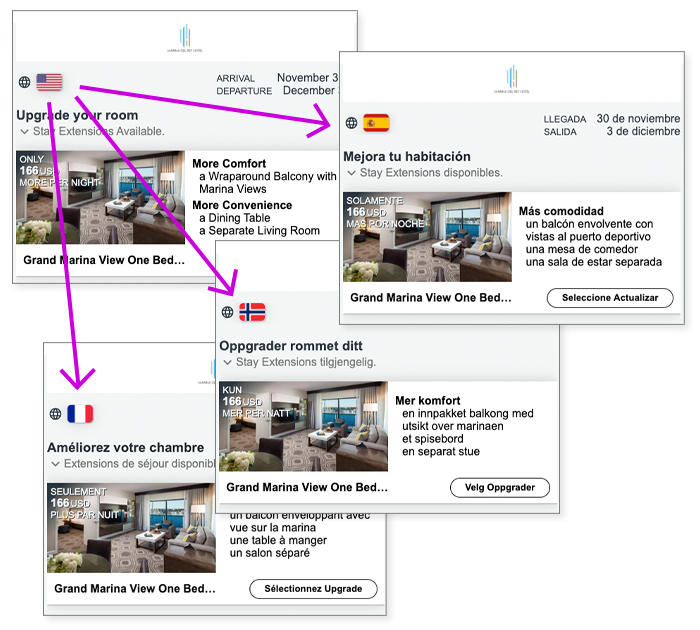Thought Leadership
Speak their Language: Why Translation Sells

English is commonly regarded as one of the world’s most used languages. So, it’s not surprising that over 60% of all web content is in English. Many companies assume that because the majority of web content today is in English, there isn’t a big demand for a localized version of their content and translation is unnecessary. However, the facts tell another story. English native speakers only comprising approximately 5.4% of the world’s population. When it comes to the internet, over 70% of all internet users don’t speak English as their first language.
Translation matters
Large markets exist beyond the English-speaking world – and the importance of having website content available in the language of your prospective customers cannot be overstated. A research series by Common Sense Advisory, Can’t Read, Won’t Buy, underlines the immense importance of offering multilingual options for B2C and B2B — as well as the pitfalls for English-only content. Some of their headline findings include:
- When it comes to parting with their cash, 65% of consumers would prefer content in their native language.
- 75% of respondents will not make important purchasing decisions unless the product description is in their native language
- 40% will not make or complete a purchase at all unless the product description is in their native language
This is the power of content translation. Yes, of course, many customers speak English. But you’ll maximize your chances of succeeding in international business by speaking their native language.
Translation is a powerful tool in eCommerce
Twenty years ago, companies didn’t know where to start when it came to content localization. Creating an effective multilingual digital content experience was not straightforward. It came with many maintenance questions (headaches) and was mostly cost prohibitive. However, times have changed. Smart applications of translation solutions, like Google Translate mean a business can leverage machine translation (MT) engines. For major players in eCommerce with consumer facing applications, MT has proven to be an invaluable tool. Big brands, like eBay and Airbnb have been very open about their use of MT with the former even writing reports on how MT boosts productivity, saves time and translation costs.
Let ROOMDEX help you maximize your sales
At ROOMDEX we understand the value of providing guest facing emails and product offers in a customer’s own language. That’s why we use Google Translate, so that you can ensure that your digital content is easily accessible to everyone regardless of language.

Via API integration, ROOMDEX quickly and easily automates translation for your hotel, allowing you to provide guest facing communications in multiple languages. Hotels no longer have to manually translate content. There are no multiple translations of emails or endless translation of offers. Instead, ROOMDEX’s Google Translate integration automatically does it for you.
But is it accurate? Undoubtedly, accuracy is the most obvious concern when it comes to machine translation. But you need not worry. ROOMDEX includes an internal [hotel] language interpreter, ensuring precise translation output in foreign languages. At ROOMDEX, accuracy isn’t a problem.
When applied intelligently, MT is a very powerful tool. Understandably, the majority of consumers have anxiety about transacting in a foreign language, especially if they don’t fully understand what they’re reading. But with automated translation, you will foster the trustworthiness required to convert the business of a much wider audience. According to Forrester Research, such confidence and trust can increase revenue by approximately 300%.
Have questions about how to make this all work? Contact ROOMDEX. We’ll help you to start speaking your customer’s language. Your brand stands to gain a lot, in both reputation and revenue.


